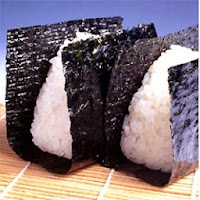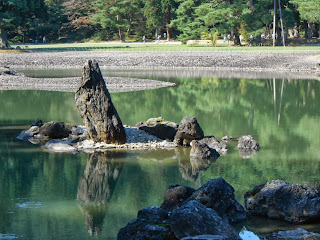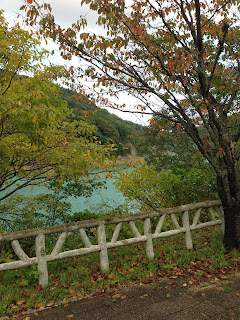When I was much younger, I had so many ambitions for my future. I wanted to be a farmer, a wildlife videographer (something I made up because I was somewhat obsessed with "The Wild Thornberries"), president, a nutritionist, spa manager, psychiatrist (or was it psychologist?), veterinarian (until my mother told me I'd have to squeeze anal glands and put animals to sleep), actress, Renaissance Faire character player, ballerina, cook, and children's book author/illustrator. Ironically, any time someone asked me if I was going to be a teacher like my mother, I vehemently denied the possibility!
And look at me now: teaching English of all things. But is this what I intend to do with the rest of my life? Who knows. Not me, that's for sure! I know a lot of people who have known for a long time definitively what they wanted to be including nurses, firefighters, cops, teachers and an anesthesiologist. At times, I've envied these people their sense of direction and purpose. Why couldn't I just figure out what I wanted to do, stick to that path and just go for it? There's something depressing about not having a direction in life and I've often felt like Preston from "Avenue Q."
I mean, really: what do you do with a B.A. in English?
Apparently, anything and everything you might want...but it's going to require at least 2 years of experience which you can't get unless you've had 2 years additional experience. I call this "The Barista Paradox." So until I figure out where I'm best suited, my plan now is to get my two years out of teaching English and twist, morph and mutate it into a career. But again, never having been a "five year plan" girl, who's to say I won't just stay in Japan? I love this country and have so much to learn and discover about it and myself that I can't comfortably say what's going to happen.
On that note, I'd like to make a comment on Japanese work ethic. In particular, their "career" ethic. At the current place in the curriculum, students are learning how to use future tense:
"I want to...I'm going to...I will..."
Easily the best way to teach the students how to express their plans is to ask them "When you're 25, what do you want to be?" (This is directly from an exercise in the text) Then in the back of each book is a page full of popular careers Japanese students can use for projects in the book. The lists include the following:
musician
carpenter
editor
dentist
nurse
florist
pilot
singer
cook
newscaster
firefighter
conductor
interpreter
lawyer
pharmacist
police officer
vet
soccer player
computer programmer
diplomat
reporter
scientist
designer
These all sound like some serious careers that take years of study and result in some real prestige. These are careers that will earn you a title and sometimes, fame. But the list continues:
barber
farmer
beautician
post office worker
gardener
flight attendent
school groundskeeper
nail artist
florist
gas station attendent
stonecutter
waiter
maid
bank worker
mechanic
air traffic controller
dressmaker
newspaper deliveryman
sailor
typist
My first impression when I read the extended list another teacher typed up for his class, was "This is ridiculous! What junior high school student says 'I want to be cab driver?'" But as I giggled to myself and asked each student in turn what their plans were, I realized something that Japanese students and people realize that hasn't quite occurred to Americans.
Everyone wants to be famous, but not everyone will get there. Sometimes, it's not worth trying because not everyone is destined for greatness -- and here's the revelation -- because
not everyone is special.
Think about it: how many reality shows exist in America that are about the average Joe making millions of dollars in 20 minutes, rising to stardom by dancing, singing or spinning plates, marrying a secret billionaire, etc?
What about social media? There are so many outlets for people to share their opinions and events in their lives from the mundane to the extraordinary. Darryl from "The Office" says it best here:
http://www.youtube.com/watch?v=cCDsZsyMTJY
Too much information in the information age! A lot of the time, it's like who the hell cares? But that doesn't stop us: Everyone wants fame! Everyone wants their name in lights today when once upon a time, it was enough to take over the family business or graduate high school and go to work in town while a couple classmates went to college and became lawyers and scientists.
Remember George Bailey from "It's a Wonderful Life?" All George wanted was to get out of that one horse town and see the world! All he wished for was a million dollars. Maybe a little contradictory, but listen:
he did it in jest! Striking that cigarette lighter wasn't a legitimate wish! It was just a habit he enjoyed and wouldn't think about immediately after. Was his pursuit really getting the cheddar? No, he just wanted to get out and see the world and do something big with his life! The message, however, is that you should appreciate what you have and realize the impact you have in the lives of the people around you and that despite your dreams, you might not realize how wonderful your life truly is.
George didn't go out and become the next Mr. Potter. He stuck to his roots, as much as it sometimes pained him. He stayed in the tiny town and married the little sister of his best friend. (Mary actually had the opportunity to marry a man who moved to New York and became a tycoon, but she stayed in Bedford Falls because she knew what she wanted was truly closer to home and would make her much happier) He developed community living facilities, took over his father's bank and raised a family. It wasn't until the financial burdens took their toll that he found out what he had and how much it really meant, that without him, the world of Bedford Falls would have been the cesspool, Potterville and Mary would have been *gasp* an old maid librarian!
So getting back to Japanese students' career choices. They're really given a whole wide world of opportunities, they can choose anything they want to be, but the fact that so many students I asked said they wanted to be "office workers," "construction workers," "salespeople," and other titles that in America would be considered unremarkable made me think about what we teach American students.
I blame the "I Am Special" self-esteem regime. Having good self-esteem is very important, I know that, believe me. But there's having confidence and dreams and then there's reality. The reality is, not everyone is special. Some people are meant to work in sales, to be gardeners, to be maids and career "baby sitters" and postal workers. The fact is, so few people are going to be famous or rich that the pursuit is a colossal waste of time and in all honesty, it's selfish.
No really, it's selfish to think to yourself that you're going to dedicate your life to being rich and famous, to pay to attend seminars on how to get rich quick, to make audition tapes and strive to be the next Taylor Swift or Justin Beiber (though if those are your role models, I'd suggest therapy instead of readjusting your work ethic). It's selfish to dismiss careers that actually make the world function because you don't think they're worth your time. Who the hell are you?
I talked to a couple of my students after class one day and asked them why they wanted to be "a public official" and a "Yakult saleswoman." (Yakult is a consumable product company that makes things like probiotic yogurts and energy drinks) The future public official said "My mother works in city hall. She helps the city. It's good." The other girl said "I want to make people healthy."
The public official girl could have said "lawyer," "mayor," or "CEO." The Yakult yogurt girl could have said "doctor" or "scientist." But they see a need for these roles in society.
It's also common in Japan to take on a job and then stick with it for pretty much your whole life. Even after they retire from age (not from money, from age), many Japanese people continue working taking on unpaid day labor like waving flags around a construction site because they want to contribute.
Above all, what matters is doing what you can to make your economy and your community work as well as it can and
doing it with pride. You want to be noted? Be noted for your enthusiasm. You want to be remembered? Be remembered because your co-workers looked forward to seeing you every day. Do what you can to the best of your ability and you'll find your purpose.
Not the other way around.










































